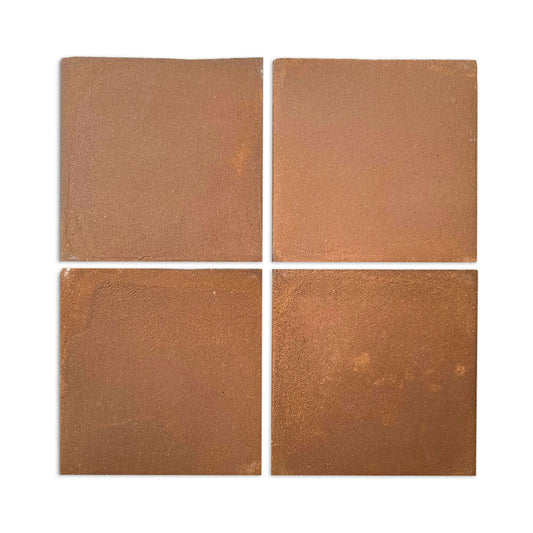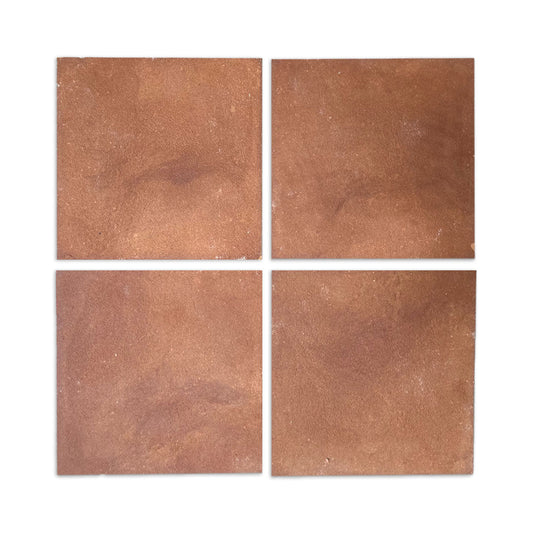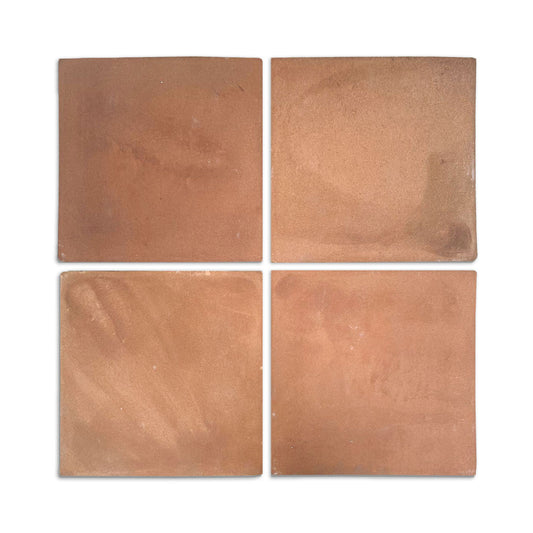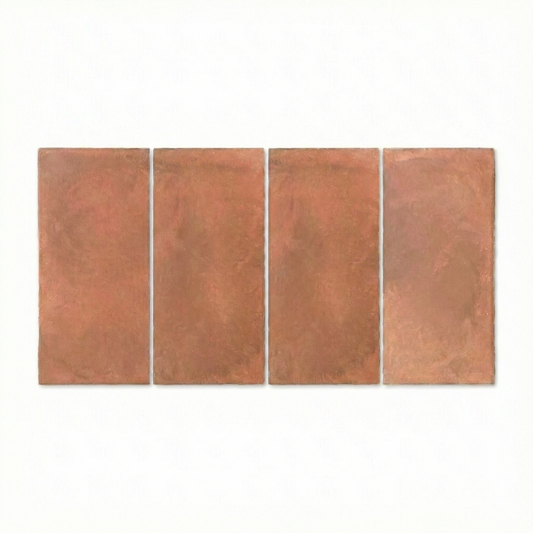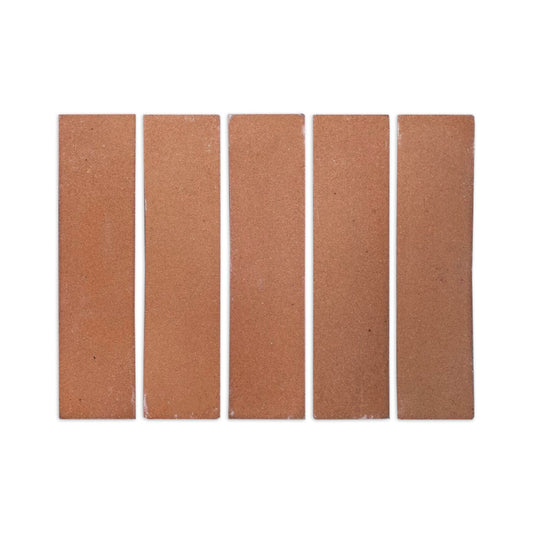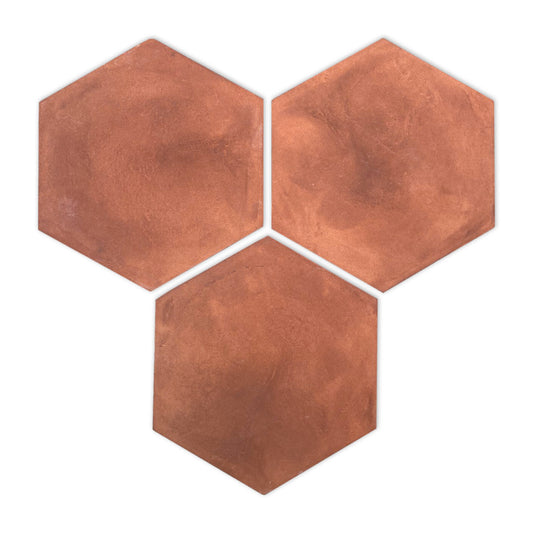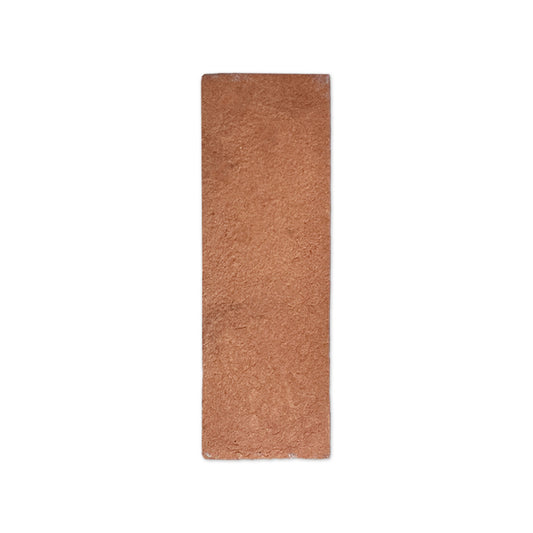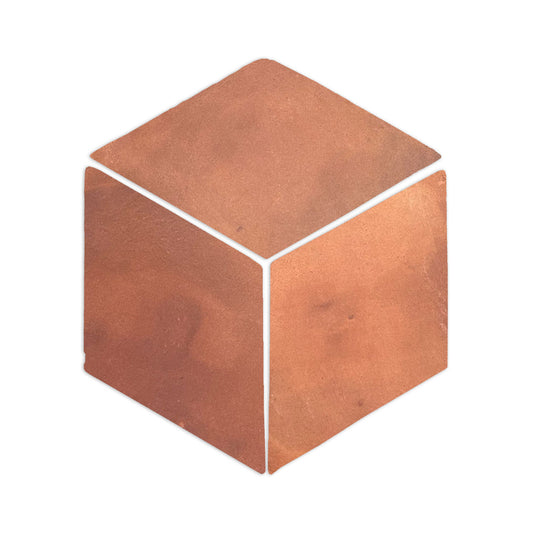Cotto Umber Color Sample
Cotto Umber Color Sample
Our Cotto Terracotta Samples (2"x4") showcase the texture, sheen, and unique natural variations you can expect. Just a quick note: this chip may not fully represent the thickness or the complete spectrum of terracotta color variations.
Color Variation
Cotto is all about the earth tones. Timeless terra-cotta hues and leather-toned variation are applicable to many design styles. Available in Tierra, Umber, Sienna and Dune.
The colors of our Cotto terracotta tiles can vary slightly, showcasing a range of shade and tone. Since it’s a bit tricky to capture the full spectrum of colors in just a few samples, we encourage you to check out our product and installation images to get a better feel for the color variations to expect.
Couldn't load pickup availability
USAGE
USAGE
USAGE
- Backsplash
- Fireplace Surround | Firebox
- Barface | Island
- Indoor applications, such as floors, walls and ceilings
- Entry
- Laundry
- Mudroom
- Commercial Applications
- Exterior | Requires waterproofing, sealing and maintenance
AVOID USE
- Harsh or frequent freezing conditions
- Commercial kitchens




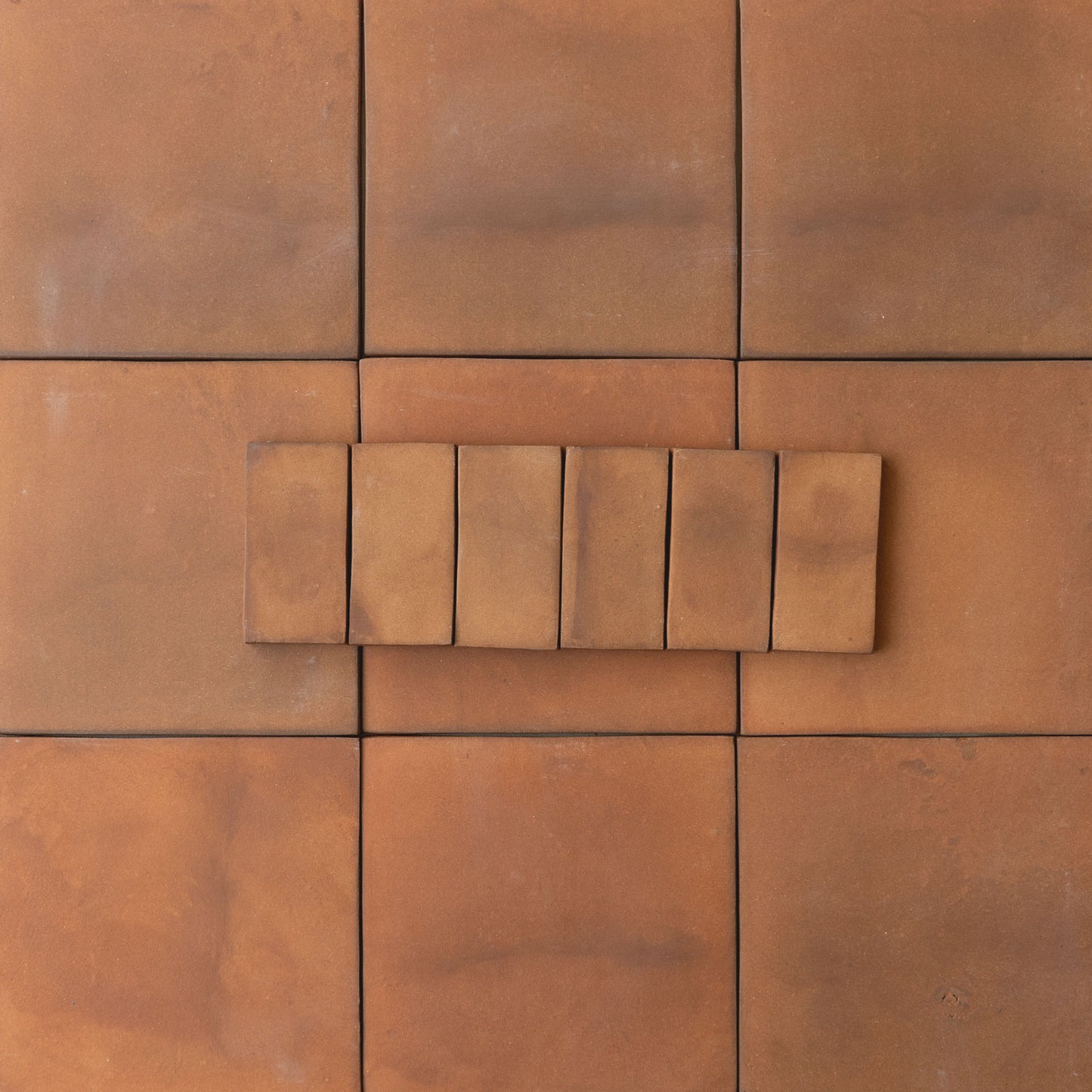

-
Cotto Umber 4.25x4.25
Loading price in sq.ft...Regular price $2.00Regular priceUnit price / per -

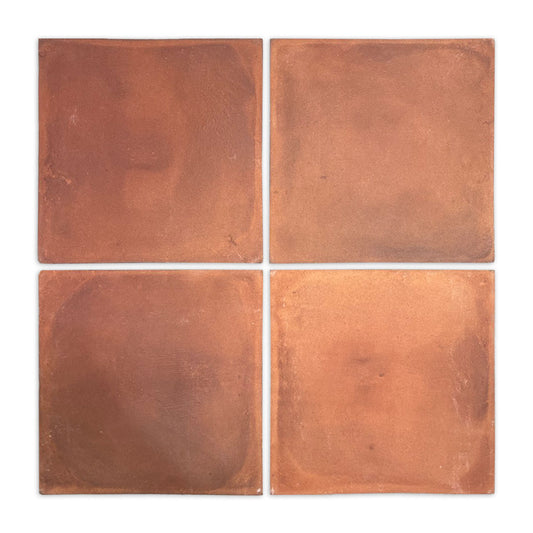 IN STOCK
IN STOCKCotto Umber 13x13
Loading price in sq.ft...Regular price $13.00Regular priceUnit price / per -
Cotto Umber 6x6
Loading price in sq.ft...Regular price $3.70Regular priceUnit price / per -

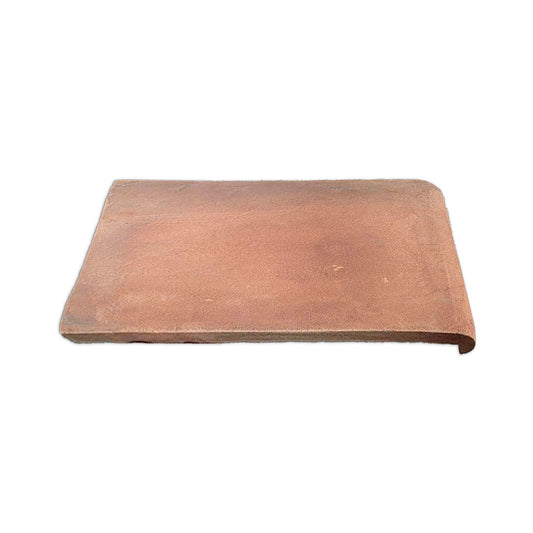 IN STOCK
IN STOCKCotto Umber Stair Coping 13x13
Loading price in sq.ft...Regular price $17.00Regular priceUnit price / per -
Cotto Umber 8x8
Loading price in sq.ft...Regular price $6.50Regular priceUnit price / per -

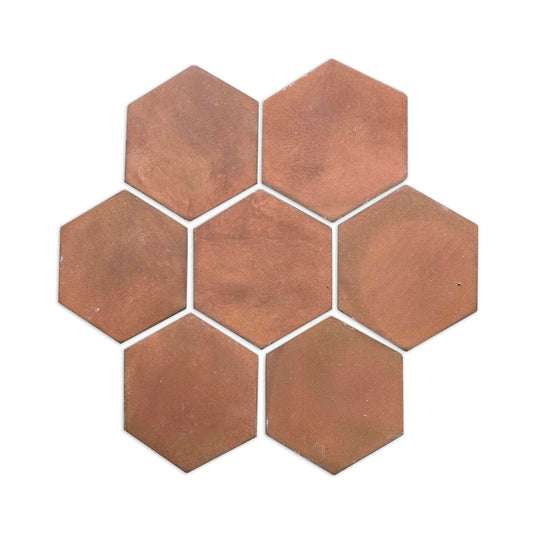 IN STOCK
IN STOCKCotto Umber Hexagon 6
Loading price in sq.ft...Regular price $4.50Regular priceUnit price / per -

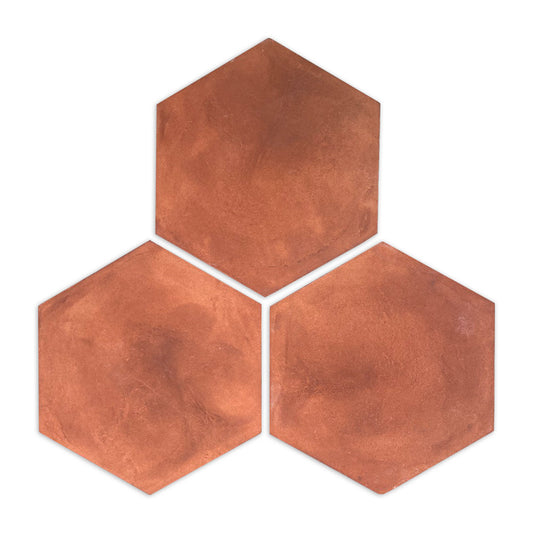 IN STOCK
IN STOCKCotto Umber Hexagon 13
Loading price in sq.ft...Regular price $16.00Regular priceUnit price / per -
Cotto Umber 6x13
Loading price in sq.ft...Regular price $9.00Regular priceUnit price / per -
Cotto Umber 2x8
Loading price in sq.ft...Regular price $2.67Regular priceUnit price / per -
Cotto Umber Hexagon 8
Loading price in sq.ft...Regular price $7.00Regular priceUnit price / per -
Cotto Umber 2x6
Loading price in sq.ft...Regular price $2.00Regular priceUnit price / per -
Cotto Umber Diamond 8
Loading price in sq.ft...Regular price $3.40Regular priceUnit price / per -
Cotto Umber 4x8
Loading price in sq.ft...Regular price $5.50Regular priceUnit price / per -
Cotto Umber 3x12
Loading price in sq.ft...Regular price $6.00Regular priceUnit price / per









